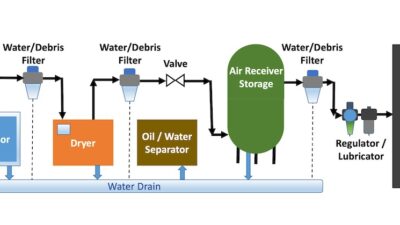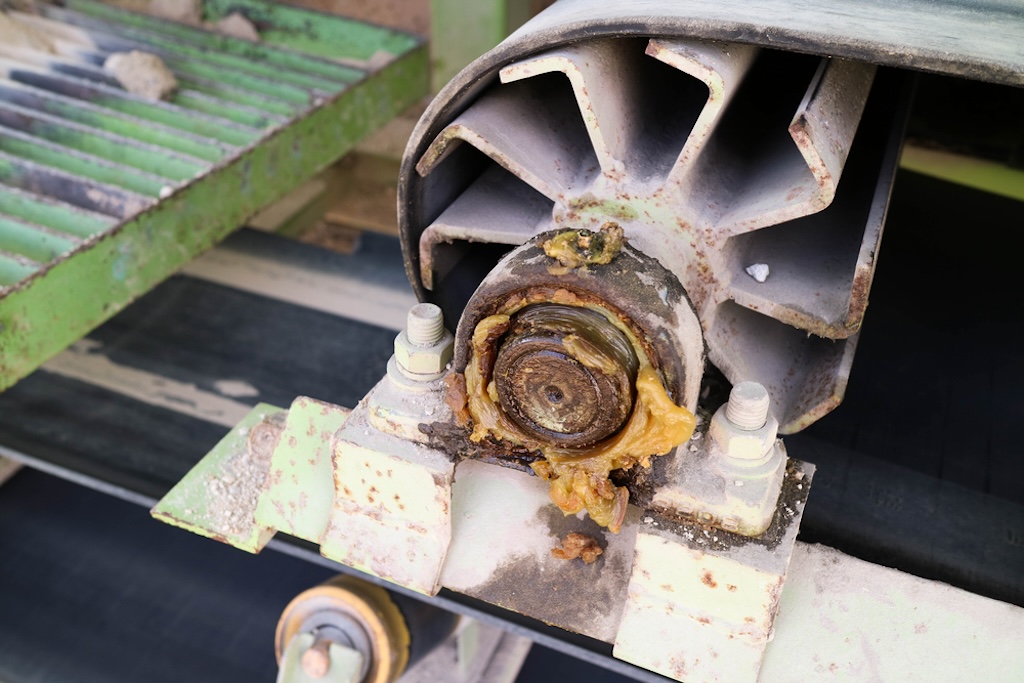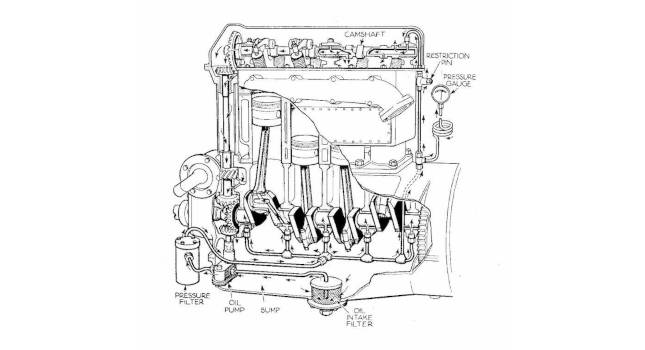Building a global manufacturing business is just the latest success for Quality Float Works
The president of Quality Float Works Inc. is many things: A concerned small business owner. A global entrepreneur. A vocal supporter of educational reform that brings young people back into manufacturing and trains the next generation of manufacturing leaders. An unabashed advocate of free-trade agreements. An innovative design engineer. A worldwide speaker on issues crucial to manufacturers.
And a mom.
Sandra Westlund-Deenihan wasn’t supposed to go into the family business, the one her grandfather started in a garage in Chicago in 1915 and her father brought out to the suburbs in the 1960s. Manufacturing wasn’t a proper career for a young woman.
But Westlund-Deenihan knew better. “I was at my father’s knee at the age of three,” she said. “I was lulled to sleep by the sounds of machinery. But my dad was a chauvinist. He believed I wasn’t supposed to get my hands dirty, so I went to college to be a dietician. But my real passion was manufacturing, and so I changed my major.”
Even with her engineering degree from the University of Arizona and a fundamental knowledge of engineering, she still bumped up against resistance. “It was a different world then,” she said. “Even though I had the engineering degree, and even though I’d give the customers all the calculations, they’d say, ‘Put your dad on the line.’ They still wanted to hear it from a man.”
The world is different again, and in many ways, Quality Float Works Inc. is at the center of that evolving world. They manufacture floats and vessels for products ranging from gasoline pumps to manure sprayers to oil and gas installations. Manufactured from stainless steel, monel copper, steel or other exotic materials, the floats are drawn from metal into half-cylinders, welded together and delivered to customers around the world.
Westlund-Deenihan is more that just a third-generation offspring. She’s hands-on, redesigning products for her customers that meet both their needs and can be manufactured to the 100% quality standards her family business has represented for 93 years.
Her grandfather would have been proud. In the end, her father was. “My father lived long enough to see that I’d really been able to do a lot,” Westlund-Deenihan said.
The fourth generation is already in place. Westlund-Deenihan’s son Jason Speer will succeed his mother when she decides she’s designed her last float. Speer has already played a major role in the company’s development, opening up international markets and putting Quality Float Works Inc. in a competitive global manufacturing environment.
“We put together the international plan in 2001,” Speer said. “We worked with the Department of Commerce to put together a plan to go to the international market.” This all takes place each day in a relatively small plant in Schaumburg, IL.
Quality Float Works Inc. manufactures the float balls and assemblies for a variety of oil and gas, plumbing and agricultural uses. One area where they have been unique is in expanding beyond simply a float ball supply house. It is their ability to custom engineer, design and manufacture floats for specific customer needs that helped grow the business.
The manufacturing process is customized as well. The myriad dyes are formed into halves with a flange, then matched and welded, with the flange buffed off. The precision work allows the floats to be made precisely into any shape and from most any metal. While there are stock items, Quality Float Works Inc. takes the most pride in solving specific customer problems through a combination of expertise and engineering.
“It’s different every day,” Westlund-Deenihan said. “I’m working on two custom projects now for customers. That’s good. That’s what keeps it interesting. People come to us with specific problems, tell us about the operating conditions and I’ll design something for them. “It continues to be interesting to me,” she said. “To be accepted as one of ‘the guys’ is very rewarding. What makes our products unique is that when we true the flange and buff the edges off, we get a true diameter.”
Quality Float Works Inc. moved into the international market by taking advantage of a weaker dollar to manufacture their unique products on a competitive basis. Westlund-Deenihan is a strong supporter of free trade agreements, arguing that without them, her company would not have been able to bring its small footprint to a global audience. Speer has traveled to 83 countries, and Westlund-Deenihan has spoken before audiences in places such as Dubai, where women are typically not given such a stage. She also argues that the global shift in jobs creates an opportunity for the U.S.
“If we are going to lose jobs to overseas, then we have to focus on advanced manufacturing,” she said. “The job loss has gotten to be an excuse. People like Jason and myself put a new face on it. When there is an economic crisis, America knows how to solve problems.
“But we have an aging workforce. A lot of people coming in for entry level jobs have no soft skills, and their math skills are terrible. Employers have to step up and take charge. They can’t wait for government to solve the problem. “People don’t understand the importance of free trade,” Westlund-Deenihan added. “Because of it, I’ve had to increase the staff by 50% to handle the international work.” The success shows up in their sales figures. Quality Float Works Inc.’s revenues have more than doubled in the last six years. The success with some products in the global agricultural market has created a domestic market for the same products.
Quality Float Works Inc. develops its work force by a combination of a strong growth strategy and a singular touch with its employees. While Westlund-Deenihan is the engineering behind the product, she makes it clear to her workers that it is the execution of that engineering that is vital to success. “Every Christmas, I tell the employees the same thing — ‘I’m a concept without you.’ I’m just a lot of calculations. You’ve really got to take care of the people who actually make the product.”
The plant is a strong practitioner of Lean manufacturing, and Westlund-Deenihan works to make sure it is well-executed. “Lean starts from the top down, but we also have to take a good look at the middle,” she said. “Our workforce is made up of veterans and immigrants and women, many of whom are re-entering the workforce. With your incumbent workers, it’s critical to provide training so they stay technically savvy.” The company also provides a number of traditional and non-traditional perks that personalize the relationship between employer and employee. “We provide a personal trainer, and we provide haircuts,” she said. “They spend most of their daytime here. We want to take care of our people.”
That care extends to flexible work hours to help accommodate for workers with families, YMCA memberships to help work out some stress off the job. The company even offered loans to employees hardest hit by recent economic upheavals. “We try to help in many different ways,” Westlund-Deenihan said. Quality Float Works Inc.’s influence has stretched beyond its own organization. In 2008, Speer was named to the U.S. Manufacturing Council by Commerce Secretary Carlos Gutierrez. His role is primarily to advise the president on manufacturing-related policies and chairs the Council’s Sustainable Manufacturing subcommittee, which has recently released a policy paper on this topic. He is the only Illinois representative on the council and one of its few small business executives. He’s also an elected official, serving as a village trustee in the suburb of Streamwood, where he’s helped push the community toward the same kind of green initiatives he’s advocated in the family business.
Westlund-Dennihan is also politically active, serving as a trustee in Hannover Township. In that role, she’s helped develop a township-wide job fair to bring prospective employees and area businesses together.
The company takes an active interest in workforce development. Quality Float Works Inc. is a member of the Chicago Manufacturing Renaissance Council, which has worked to develop two manufacturing-focused high schools in Chicago. Those efforts will turn out students ready for either advanced degrees in engineering or ready to fill the many openings in manufacturing in the area.
One high school, Austin Polytechnical, has taken the shell of a distressed inner-city school and turned it into a new manufacturing-focused academy with the support of Chicago education, political and business leaders. “What’s exciting about the Austin Polytech model is that it can go anywhere,” Westlund-Deenihan said. “We want to take it into the suburbs. Once you have the formula and you know it works, it can go anywhere.”
Part of the success of those efforts is engaging all the stakeholders in the success of such a school. “I’m a big believer in science, technology and math,” she said. “But you have to engage the parents and children at an early age. I need a quality work force and I need it now.”
Quality Float Works Inc. also has a partnership to bring special education students from area high schools into the workforce, delivering hands-on education and training for those students.
All of these programs and all this encouragement to choose a career in manufacturing are things Sandra Westlund-Deenihan might have taken advantage of if it were available to her in a time now past. But she doesn’t spend a lot of time looking back. With Quality Float Works Inc. growing, with a new design or two on her drawing board and with a challenging global economy at her doorstep, there’s too much to do today. “We may be small by operating size, but our mentality is to think big,” she said. “We identify with larger businesses. I knew to be successful you have to surround yourself with people better than yourself.”



